Cooperation scales up with Singapore
Singapore and Vietnam agreed in 2023 to upgrade their strategic partnership, established in 2013, to a comprehensive strategic partnership (CSP), and both sides are working hard to flesh out many new areas of cooperation that will make this upgrade both substantive and substantial in the years to come.
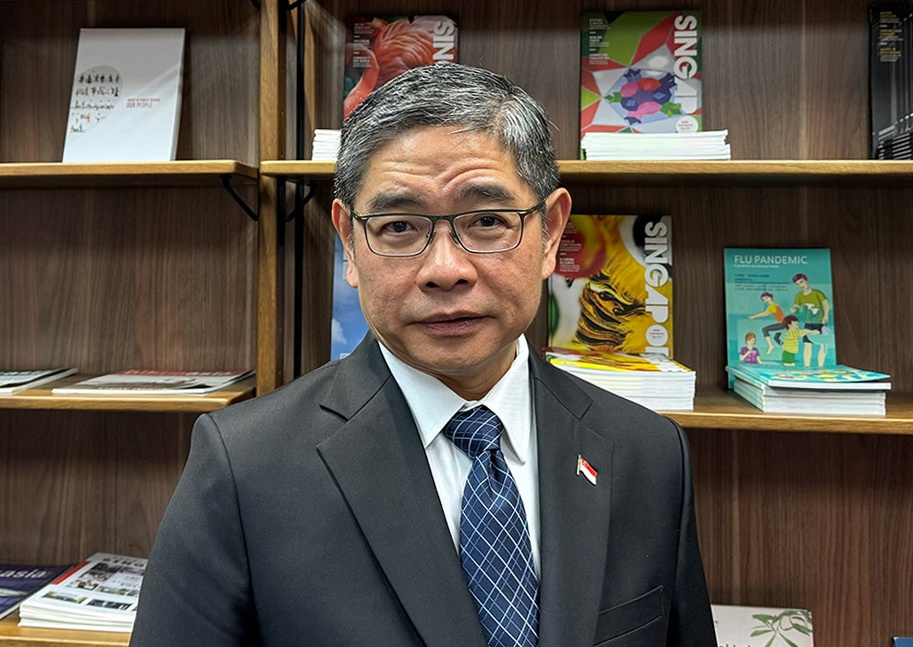 |
| Pang Te Cheng, consul-general of Singapore in Ho Chi Minh City |
At the same time, free trade agreements (FTAs) like the ASEAN Free Trade Area (AFTA), Comprehensive and Progressive Agreement for Trans-Pacific Partnership, and Regional Comprehensive Economic Partnership, play a role in enhancing economic cooperation between Vietnam and Singapore. These agreements promote trade liberalisation, reduce tariffs, and create a favourable business environment for companies operating in both countries.
For example, in 2023, bilateral trade between the two nations reached approximately $21 billion, almost double the figures from a decade ago, demonstrating the effectiveness of AFTA in facilitating trade.
These FTAs serve to emphasise the benefits of an open, rules-based international trading system, amidst increasing trade protectionism by the very major trading nations that had established the system in the first place. The economic cooperation between Vietnam and Singapore has traditionally been underpinned by the Singapore-Vietnam Connectivity Framework Agreement (CFA). First launched in 2006, the CFA has covered collaboration across the six pillars: education and training; finance; IT and telecommunications; investment; trade and services; and transportation.
The CFA has strengthened economic cooperation across many sectors and facilitated smoother business operations for companies in both countries. For example, Singapore has been among Vietnam’s top three investors for more than 20 years. The top sectors for Singapore’s investments are in financial and insurance services, manufacturing, real estate activities, and wholesale and retail.
As of May, Singapore has cumulatively invested about $75 billion in Vietnam, which makes Singapore the second-largest investor. In terms of flow, Singapore has been Vietnam’s largest investor since 2020.
According to the Ministry of Planning and Investment’s Foreign Trade Agency, for the period January to July 2024, Singapore is the largest investor among 91 countries and territories, registering investment of $6.52 billion - more than one-third of the registered foreign direct investment for the period. Bilateral trade has also grown steadily over the past decade. In 2023, Vietnam was Singapore’s 11th largest trading partner.
In August 2023, the CFA was further expanded to include cooperation in new and emerging areas of energy, sustainability, and innovation.
A comprehensive outlook
Even as Vietnam and Singapore work towards finalising the CSP, cooperation in new sectors identified has continued apace. The enhanced CFA will be one building block towards the CSP, as will the Green-Digital Economic Partnership MoU signed when Prime Minister Pham Minh Chinh made a visit to Singapore in February 2023.
Although discussions are still ongoing, possible further cooperation can be envisaged in several areas.
Green technologies: Firstly, with a shared commitment to sustainability and net-zero carbon emissions, Vietnam and Singapore can collaborate on green technologies and renewable energy projects.
Singapore’s expertise in urban planning and sustainable infrastructure can support Vietnam in its efforts to develop environmentally friendly cities and reduce carbon emissions. Studies are underway on the feasibility of Singapore importing green energy from Vietnam, e.g., from wind farms in southern Vietnam and from green hydrogen/ammonia.
Innovation collaboration: Both countries recognise the importance of technology and innovation in driving economic growth. Joint research and development initiatives in areas such as smart cities, e-governance, renewable energy, fintech, AI, biotechnology, and semiconductors will enhance both countries’ competitiveness in the global market.
In 2022, the Singapore Ministry of Trade and Industry signed an MoU with Vietnam’s National Innovation Center. The work group seeks to promote innovation cooperation among the public, private sectors, and institutes of higher learning between both countries.
Digital transformation: Given Vietnam’s interest in innovation, digital transformation, and digital economy, possible areas of cooperation between governments include digital connectivity, cross-border data, cybersecurity, and e-government tools.
In 2022, National Computer Systems announced its partnership with the Vietnam’s IT giant FPT to expand its service delivery capacity in the market and is expected to hire more than 3,000 pax by 2025. Just last month, a business-matching event was held in Ho Chi Minh City on AI. On the financial front, banks on both sides are also exploring the implementation of cross-border QR code payment connectivity, to facilitate tourist payments.
Economic resilience: The recent pandemic has highlighted the need for economic resilience and diversification. Vietnam and Singapore can build more robust supply chains and reduce dependency on external markets. This collaboration will be crucial in navigating future economic uncertainties.
For example, both countries are looking into the export of frozen and heat-processed poultry products to Singapore and beyond, as well as the sale of processed meat from Singapore to Vietnam.
Cultural exchanges: Strengthening cultural exchange and people-to-people ties will be essential for fostering mutual understanding and cooperation. Initiatives that promote educational exchanges, tourism, and cultural programmes will contribute to building a deeper connection between the two nations.
Education development: Education is a cornerstone of the bilateral relationship. By enhancing educational exchanges and collaboration between schools and institutes of higher learning, both countries can better equip their workforces to meet the demands of a rapidly changing global economy.
An existing education MoU, renewed in 2023, will provide more linkages between Singaporean and Vietnamese schools through the School Twinning Programme and internships, etc. Institutes of the higher learning from both countries have also signed MoUs to promote staff and student exchanges, training, and internships, including technical, vocational education and life-long learning.
Enhanced political dialogue: The CSP will facilitate more frequent and high-level political dialogues, allowing both countries to jointly address regional and global challenges. The annual meetings between the prime ministers will begin in 2024, which also provide high-level oversight and direction for bilateral cooperation, including timely implementation of the CSP.
Regional cooperation: Both countries are committed to maintaining ASEAN’s centrality in regional affairs, which in turn hinges on ASEAN’s autonomy, credibility, and cohesion, and the consolidation of ASEAN’s relationships with key dialogue partners. By working together, Vietnam and Singapore can help shape ASEAN’s economic agenda, promote regional integration, implement the vision under the ASEAN Outlook for the Indo-Pacific, and maintain regional stability and security.
Singapore and Vietnam will cooperate even closer on trade arrangements, including new mechanisms like the Indo-Pacific Economic Framework for Prosperity. In fact, at a June meeting in Singapore on the framework, Singapore, Vietnam, and the US agreed to form a joint working group to strengthen investment in renewable energy projects in the region as well as study the development of a regional subsea cable network to facilitate cross-border electricity trade.
Towards the next stage
Twenty years ago, when I started work in our embassy in Hanoi, Vietnam was regarded as a peaceful land that will attract birds to nest. Today, I am thrilled to see that Vietnam has progressed well. GDP per capita has almost quadrupled since 2010, and registered foreign investment has ballooned from below $16 billion to $36 billion. Yet Singapore remains the largest investor in terms of flow.
This, to me, is an anomaly given the small absolute size of Singapore’s economy. Vietnam’s ambition should be much higher – to have the big players like the US, Japan, South Korea, or China become the top investors, as they can invest many times more than Singapore.
Having made substantial progress, the next stage of Vietnam’s development can be expected to be more challenging, and conditions must be very attractive to entice the biggest and most advanced players. I believe Singapore can play a part. But Singapore is a small country and has its resource constraints.
Under the CSP, a suitable pilot project can perhaps be identified, to use the Singapore experience as a reference but adapted to Vietnam’s unique conditions, culture, environment, and stage of development. Novel policies can be piloted; lessons learnt used to adjust pragmatically along the way, with a view of eventually radiating to other parts of the country. Such cooperation will engender deeper cooperation between Singapore and Vietnam for many years to come, but will require sustained political support.
 | Healthcare groups bring expertise and innovation Vietnam’s burgeoning healthcare market remaining a bright spot for Singaporean companies and private equity funds has spurred a flurry of investments and partnerships involving Singaporean investors. |
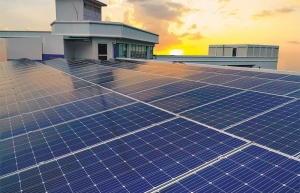 | Singaporean M&As hold wide promise Singapore dealmakers continue to set sights on dealmaking in Vietnam, with transactions in fields ranging from renewable energy to real estate. |
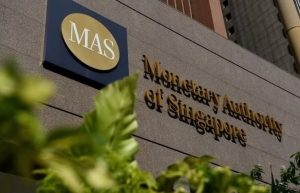 | Singapore to revitalise stock market A newly-established review group with representatives from both the private and public sectors will propose measures to revitalise Singapore’s struggling stock market. |
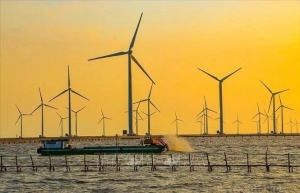 | Singapore launches market alliance to facilitate carbon credit trade The Singapore Carbon Market Alliance (SCMA) was launched recently, serving as a national platform that will help connect developers of carbon credit projects with potential buyers. |
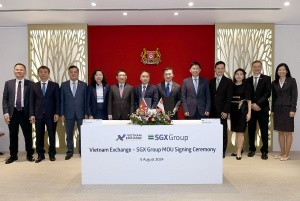 | Vietnam and Singapore ink MoU to promote development of stock markets The Singapore Exchange signs a Memorandum of Understanding (MoU) with the Vietnam Exchange to boost the development of Singaporean and Vietnamese stock markets. |
 | Singapore’s venture capital funds covering all bases Singapore venture capital funds remain the most active investor in Vietnam, with ongoing investments into local startups and potential targets ranging from renewable energy to electric vehicles. |
What the stars mean:
★ Poor ★ ★ Promising ★★★ Good ★★★★ Very good ★★★★★ Exceptional
Related Contents
Latest News
More News
- Citi economists project robust Vietnam economic growth in 2026 (February 14, 2026 | 18:00)
- Sustaining high growth must be balanced in stable manner (February 14, 2026 | 09:00)
- From 5G to 6G: how AI is shaping Vietnam’s path to digital leadership (February 13, 2026 | 10:59)
- Cooperation must align with Vietnam’s long-term ambitions (February 13, 2026 | 09:00)
- Need-to-know aspects ahead of AI law (February 13, 2026 | 08:00)
- Legalities to early operations for Vietnam’s IFC (February 11, 2026 | 12:17)
- Foreign-language trademarks gain traction in Vietnam (February 06, 2026 | 09:26)
- Offshore structuring and the Singapore holding route (February 02, 2026 | 10:39)
- Vietnam enters new development era: Russian scholar (January 25, 2026 | 10:08)
- 14th National Party Congress marks new era, expands Vietnam’s global role: Australian scholar (January 25, 2026 | 09:54)

 Tag:
Tag:



















 Mobile Version
Mobile Version